Table of Contents
Assumptions shape our thoughts and decisions, but are they always right? These quotes will make you rethink what you take for granted.
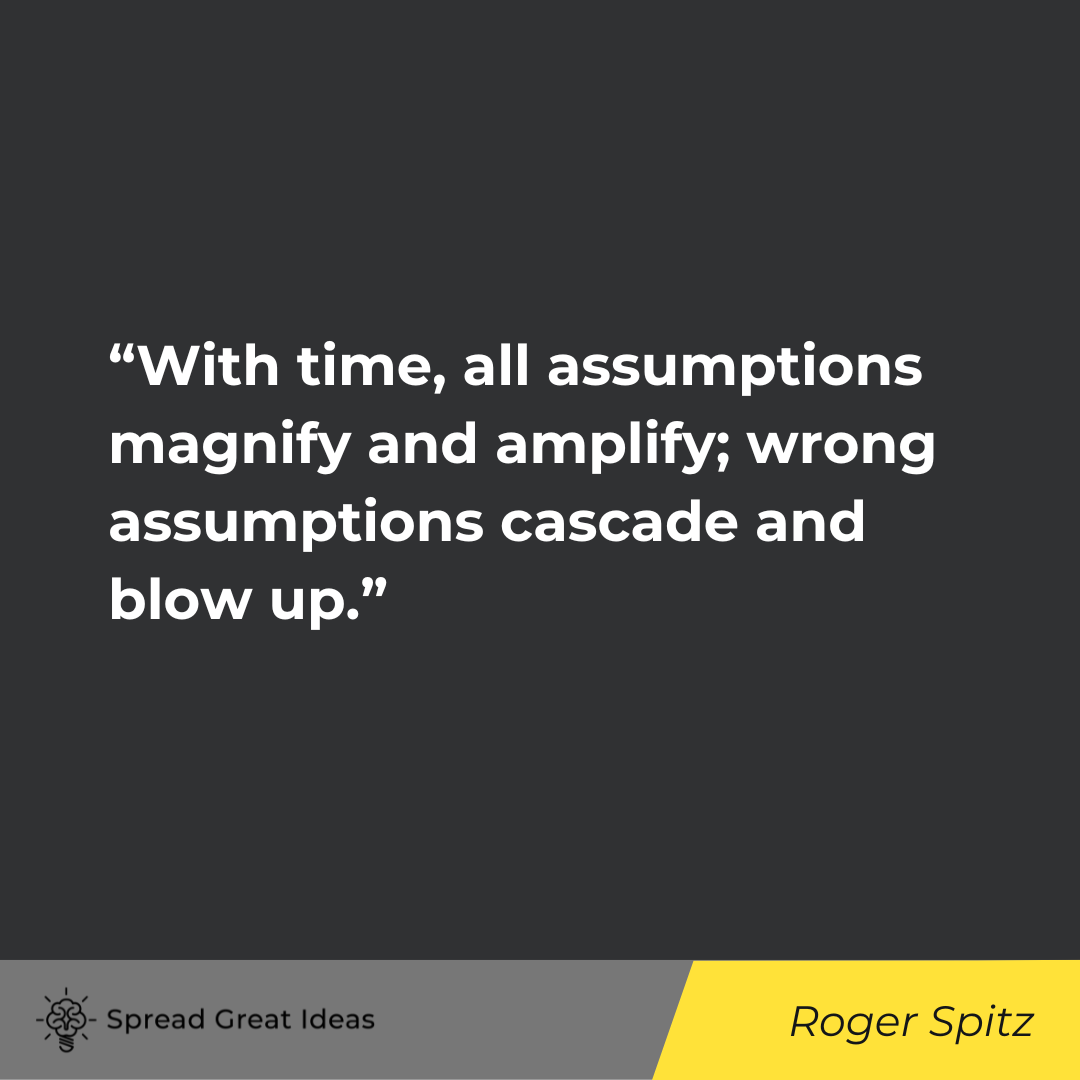
Assumptions shape how we see the world, often without us realizing it. They can lead to clarity or confusion, connection or conflict.
I’ve put together the below compilation of quotes about assumption to challenge the way we think. Some will confirm what you know, others will make you question everything. Either way, they’ll remind you to stay curious and never take things at face value.
The Dangers of Blind Assumptions
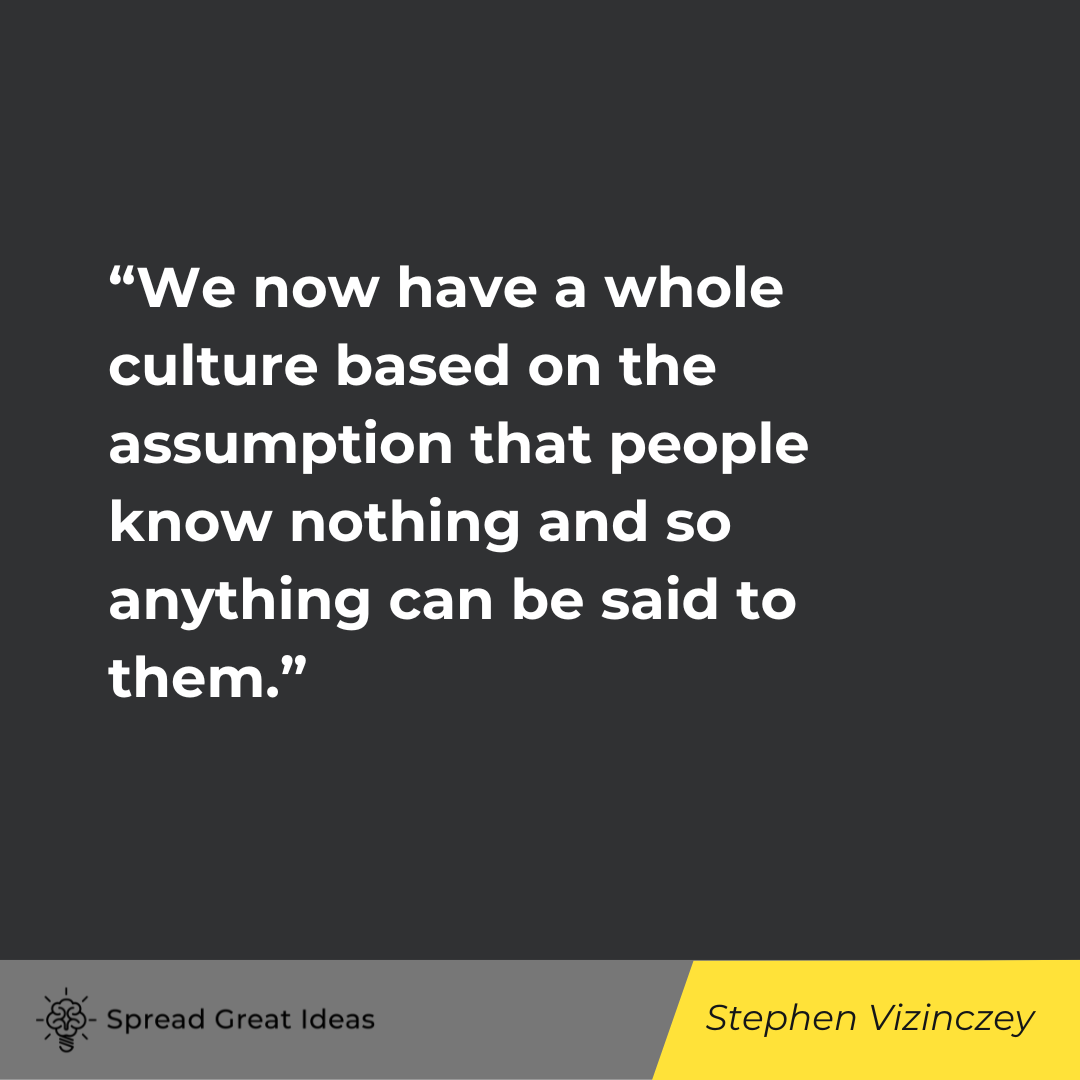
“We now have a whole culture based on the assumption that people know nothing and so anything can be said to them.” – Stephen Vizinczey
“Assumptions are dangerous things to make, and like all dangerous things to make—bombs, for instance, or strawberry shortcake—if you make even the tiniest mistake you can find yourself in terrible trouble. Making assumptions simply means believing things are a certain way with little or no evidence that shows you are correct…” – Lemony Snicket, The Austere Academy
“If others tell us something, we make assumptions, and if they don’t tell us something, we make assumptions to fulfill our need to know… We make all sorts of assumptions because we don’t have the courage to ask questions.” – Miguel Ruiz, The Four Agreements
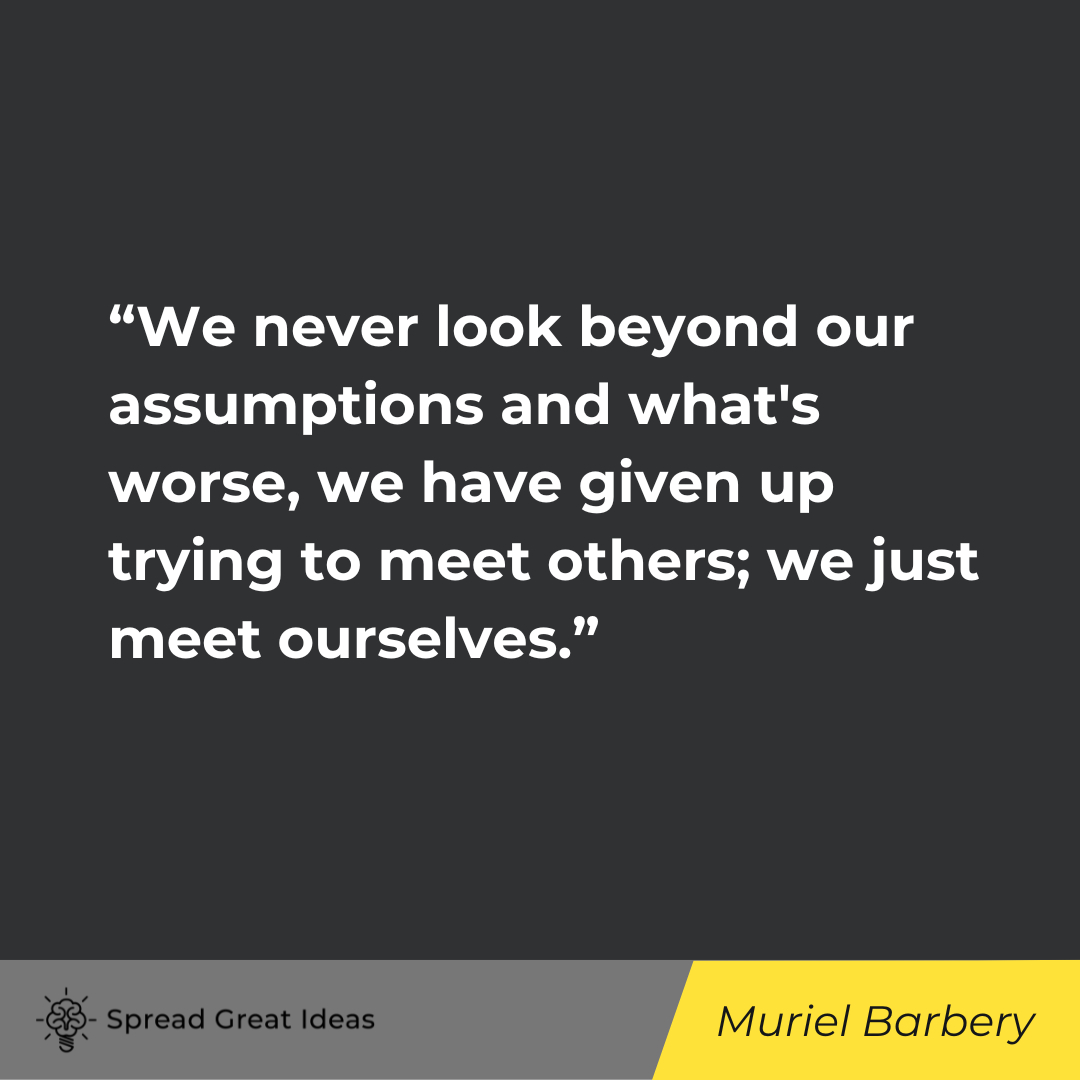
“We never look beyond our assumptions and what’s worse, we have given up trying to meet others; we just meet ourselves.” – Muriel Barbery
“While you judge me by my outward appearance, I am silently doing the same to you, even though there’s a ninety-percent chance that in both cases our assumptions are wrong.” – Richelle E. Goodrich, Smile Anyway
Assumptions and the Limits of Knowledge
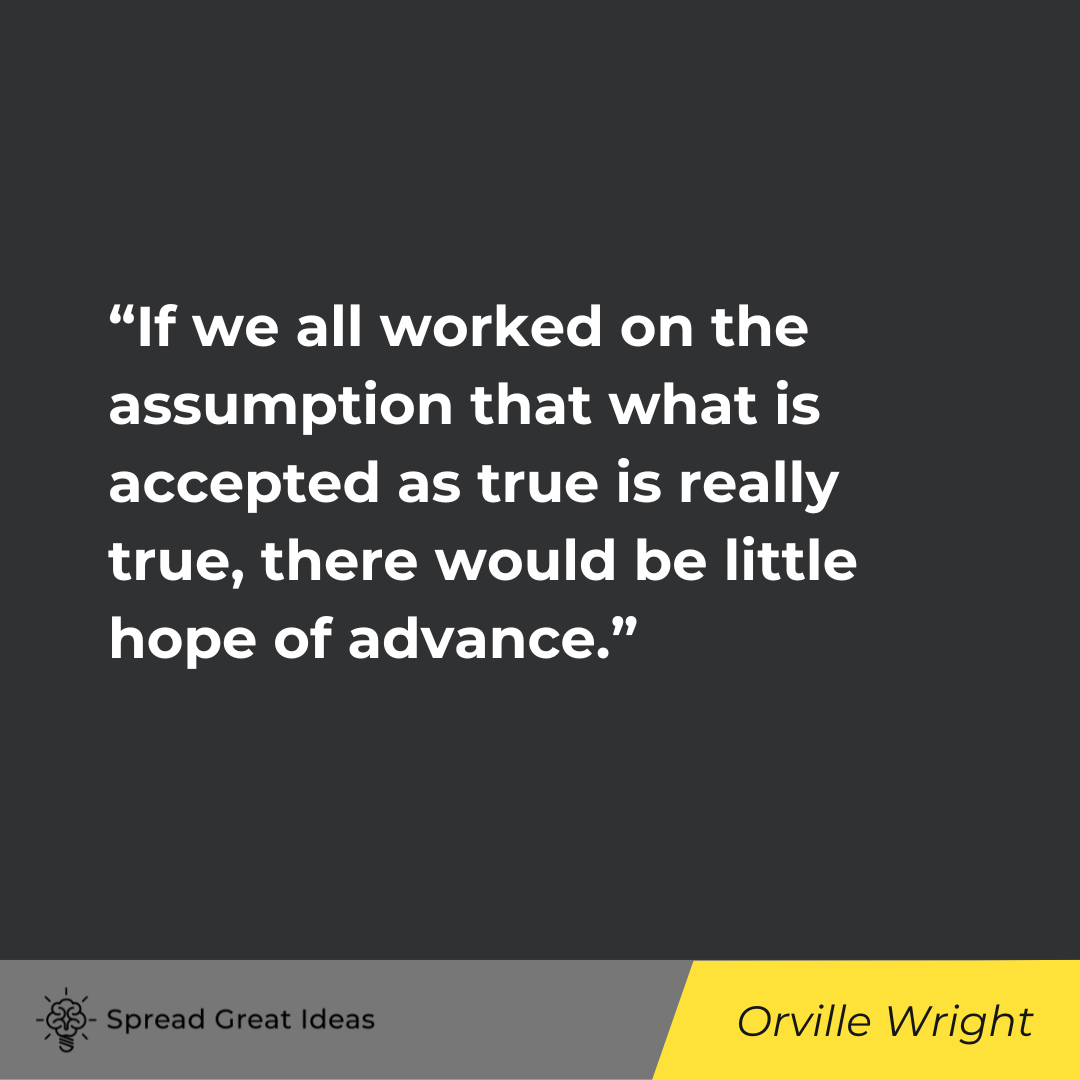
“If we all worked on the assumption that what is accepted as true is really true, there would be little hope of advance.” – Orville Wright
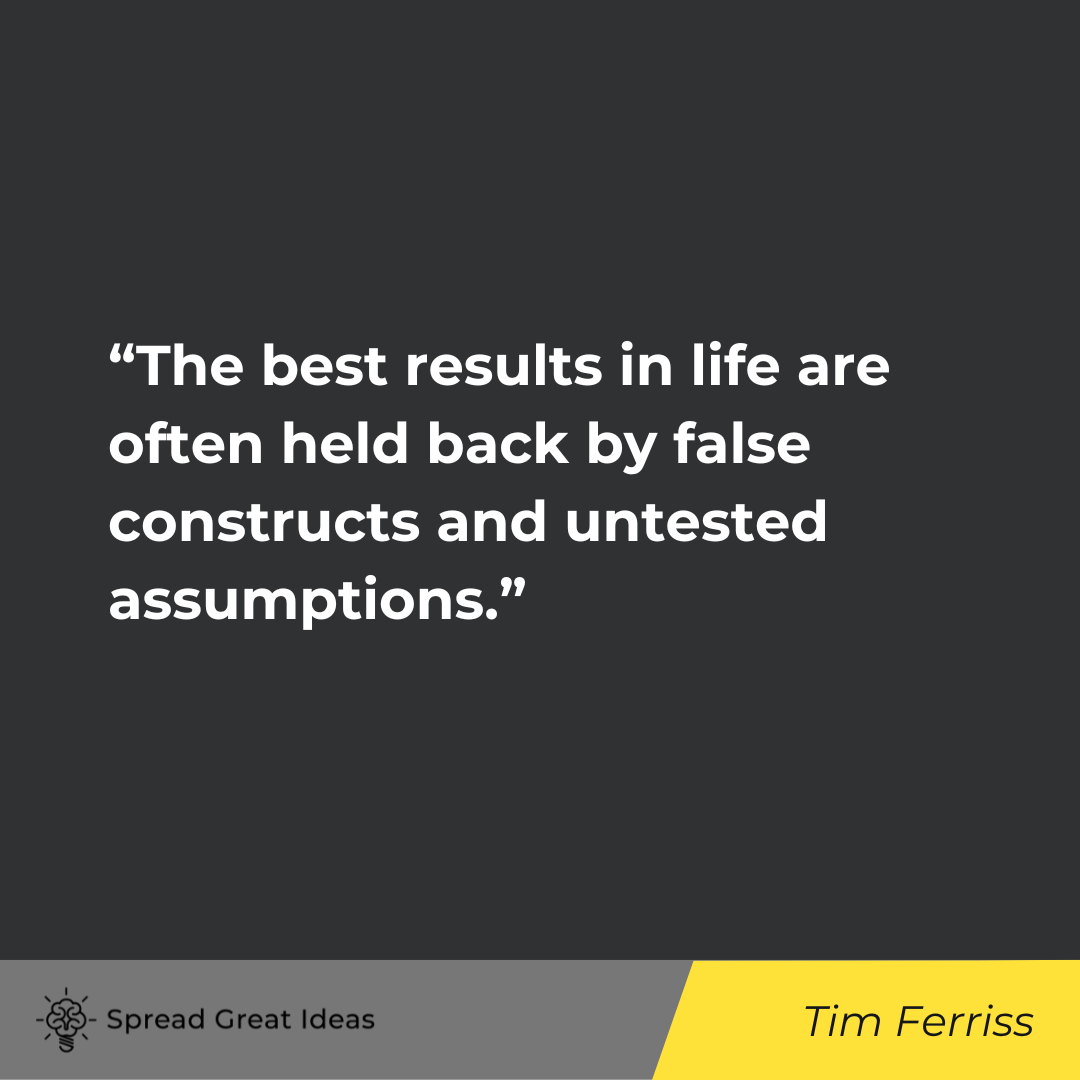
“The best results in life are often held back by false constructs and untested assumptions.” – Tim Ferriss
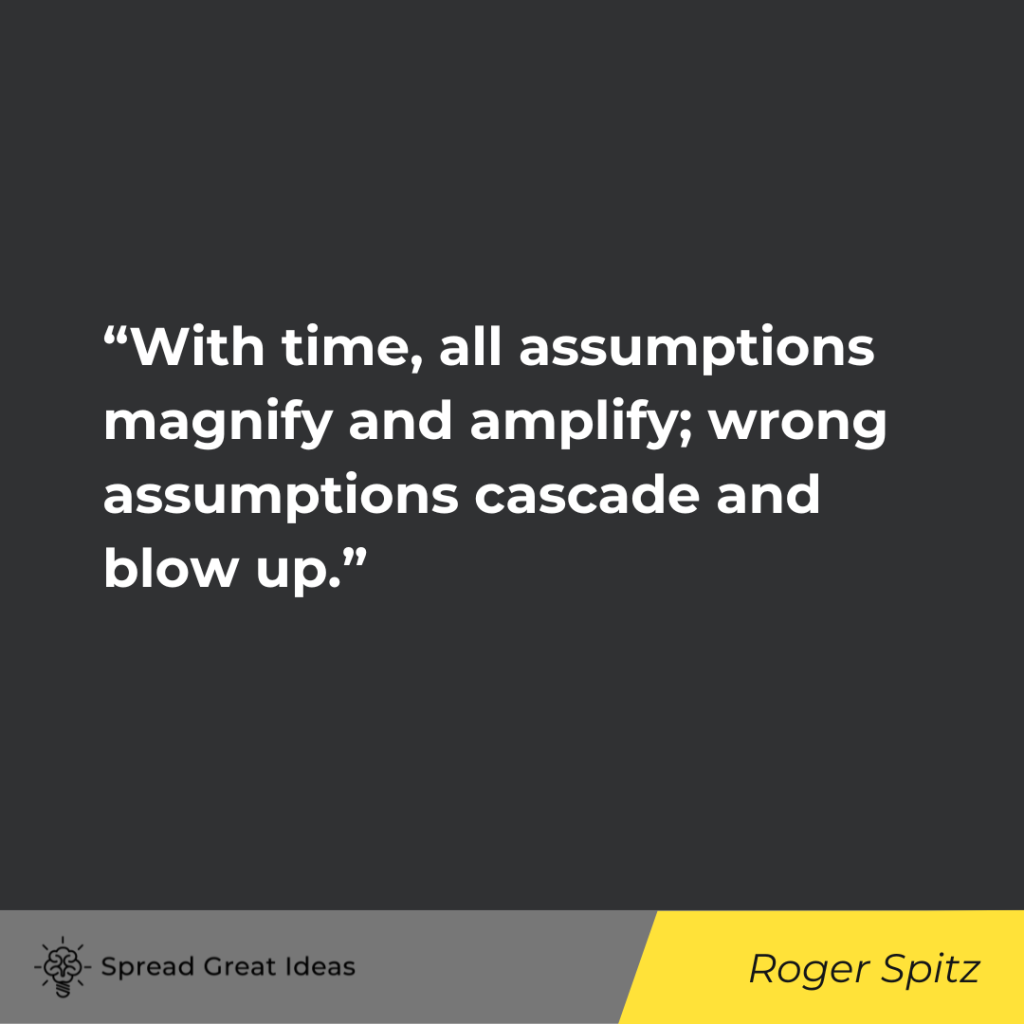
“With time, all assumptions magnify and amplify; wrong assumptions cascade and blow up.” – Roger Spitz
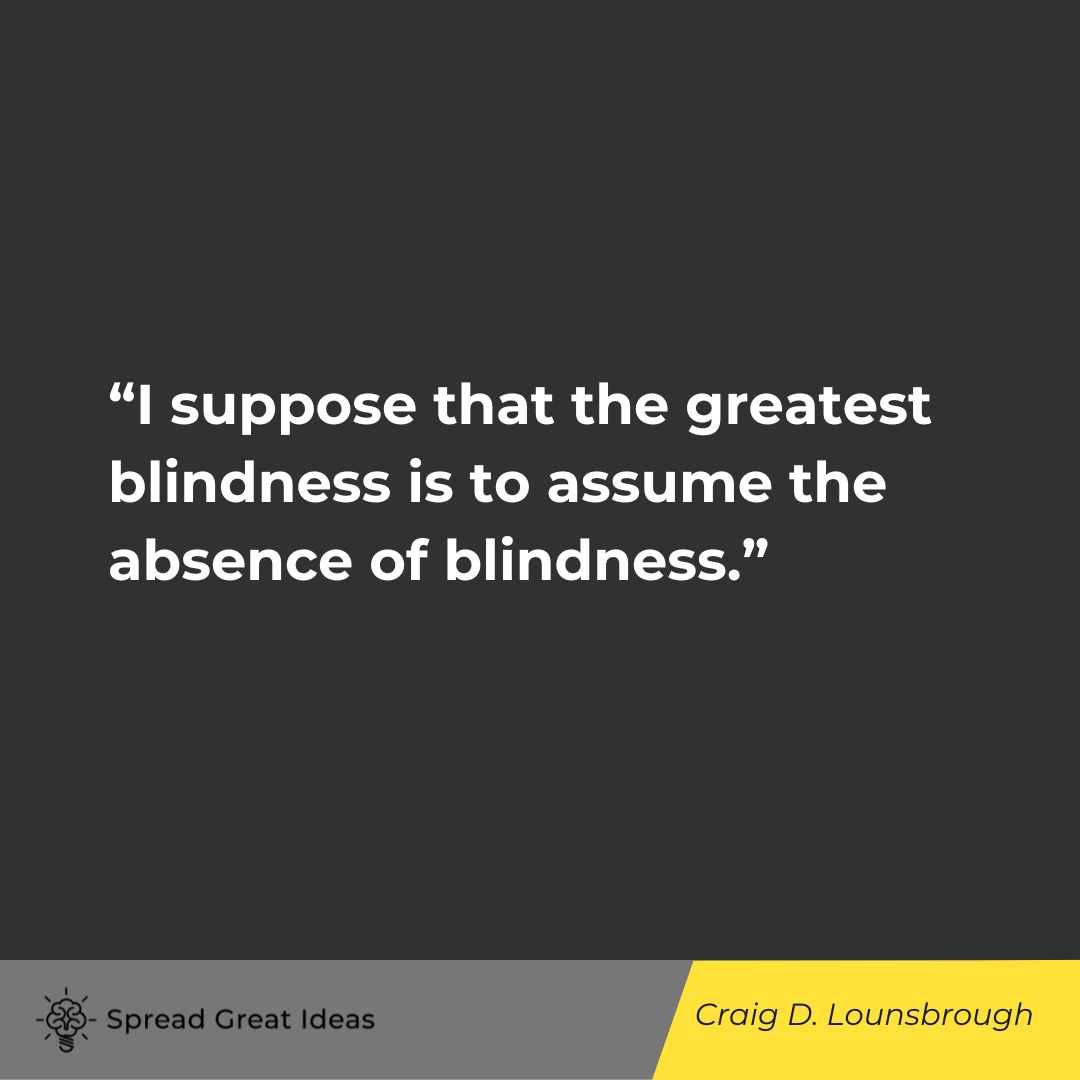
“I suppose that the greatest blindness is to assume the absence of blindness.” – Craig D. Lounsbrough
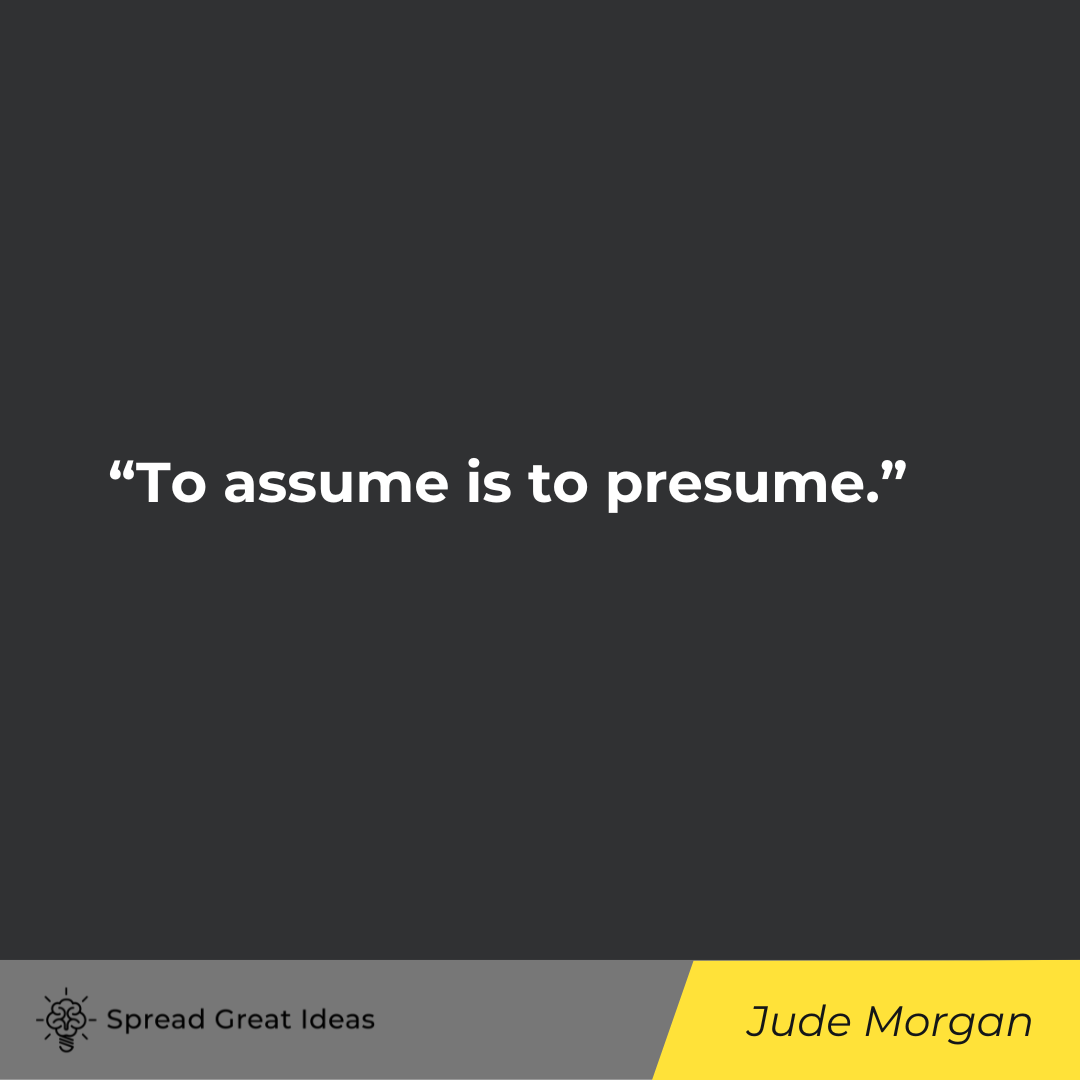
“To assume is to presume.” – Jude Morgan, Indiscretion
Challenging Assumptions Leads to Growth
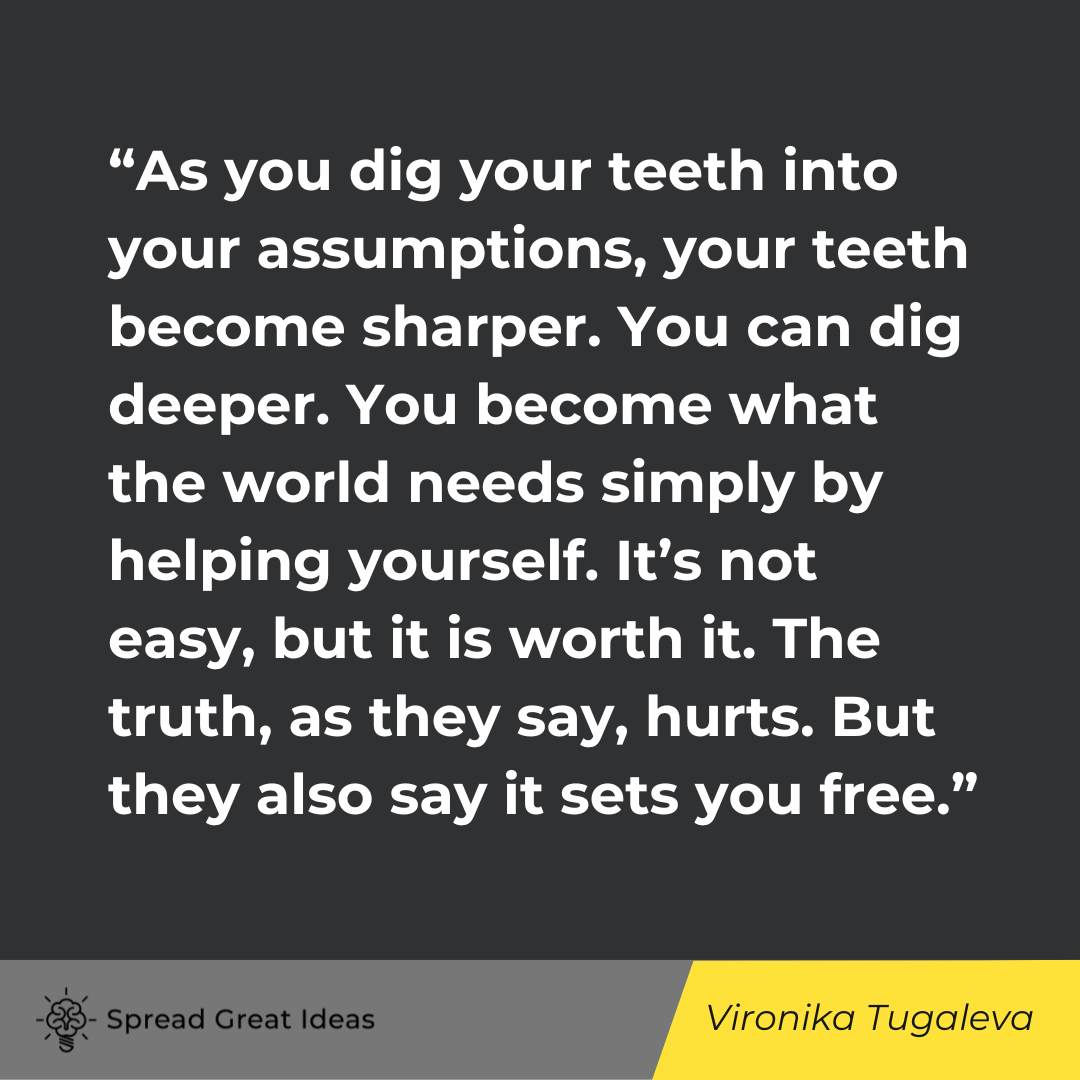
“As you dig your teeth into your assumptions, your teeth become sharper. You can dig deeper. You become what the world needs simply by helping yourself. It’s not easy, but it is worth it. The truth, as they say, hurts. But they also say it sets you free.” – Vironika Tugaleva, The Art of Talking to Yourself
“A tornado of thought is unleashed after each new insight. This in turn results in an earthquake of assumptions. These are natural disasters that reshape the spirit.” – Vera Nazarian, The Perpetual Calendar of Inspiration
“Most of our assumptions have outlived their uselessness.” – Marshall McLuhan
The Wisdom of Questioning Assumptions
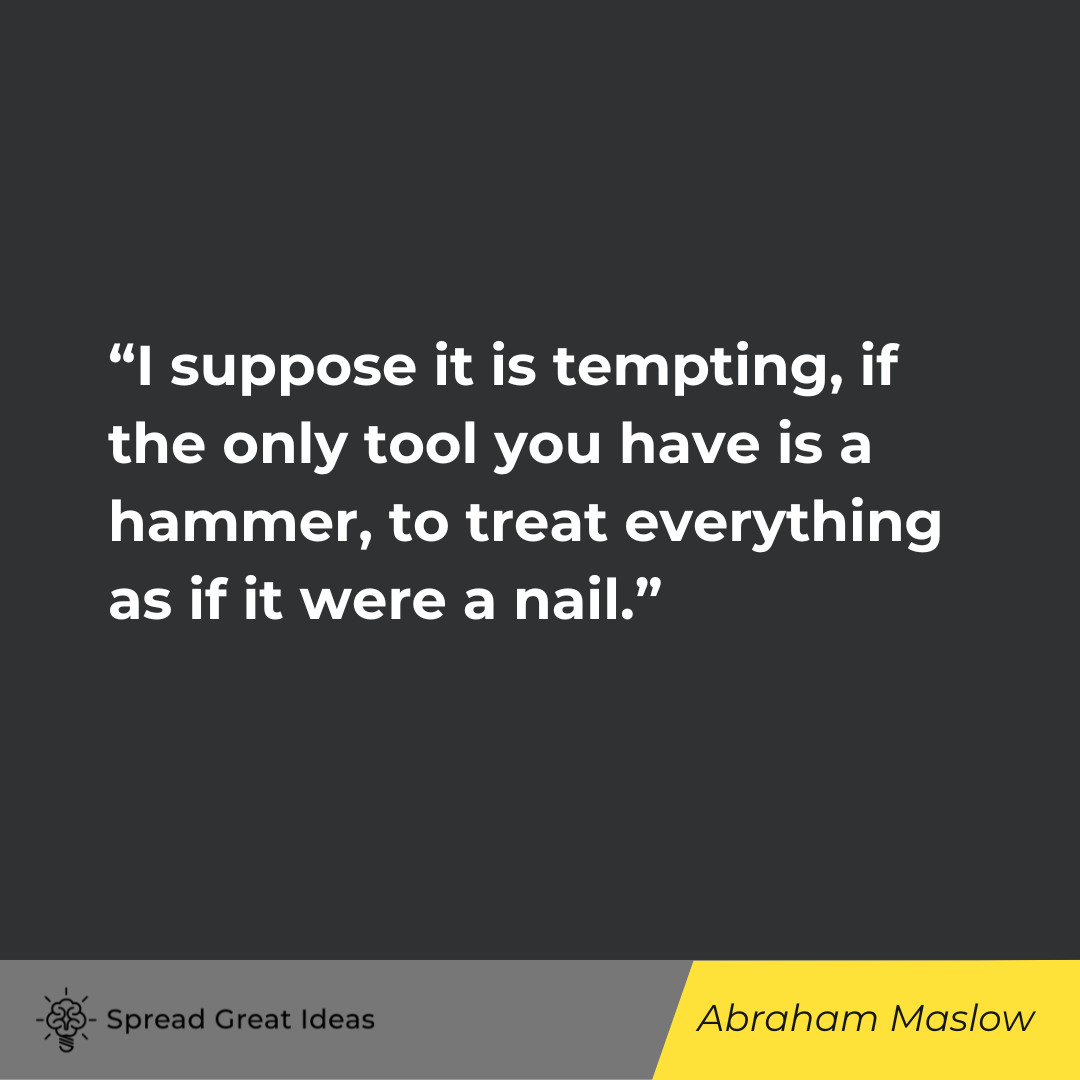
“I suppose it is tempting, if the only tool you have is a hammer, to treat everything as if it were a nail.” – Abraham Maslow, Toward a Psychology of Being
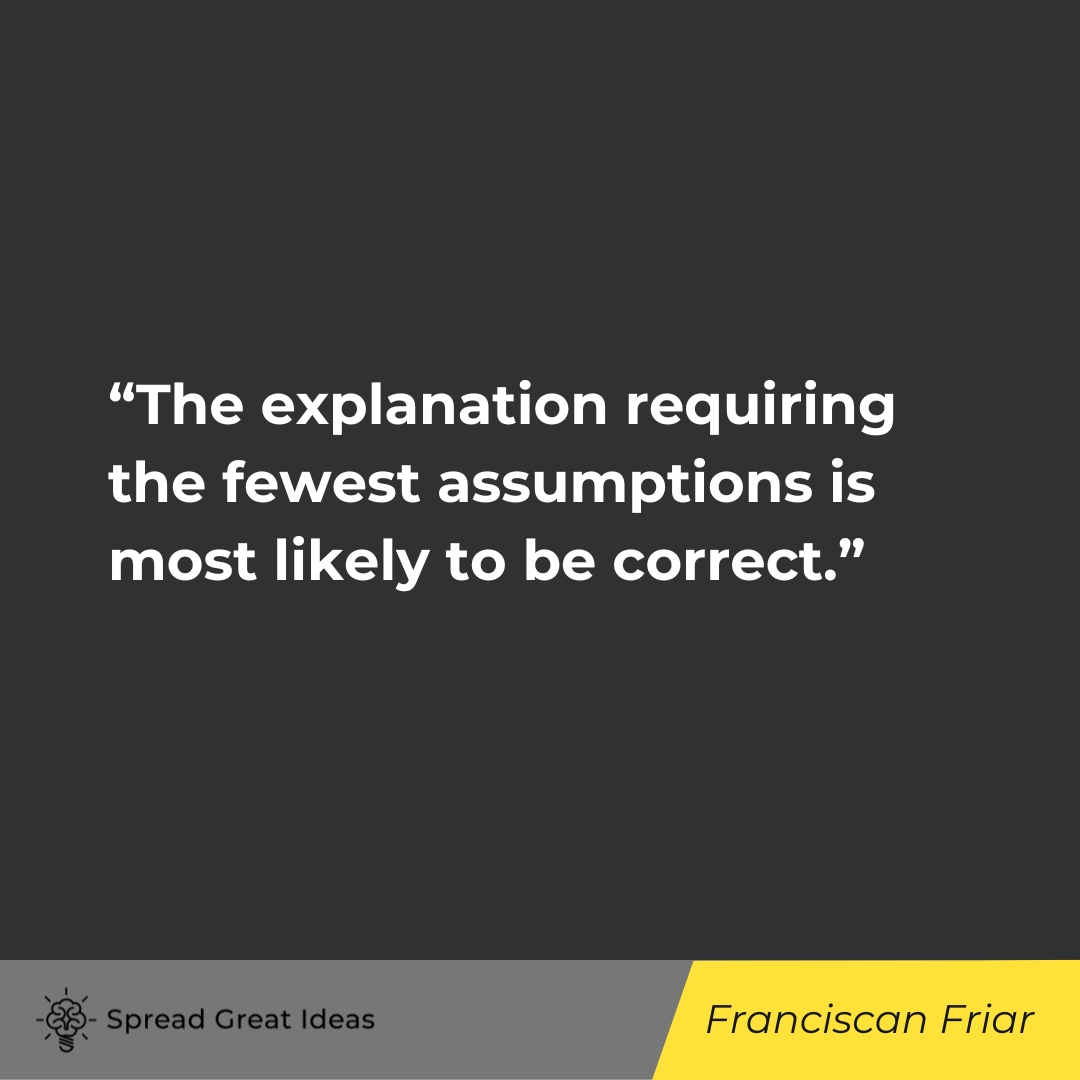
“The explanation requiring the fewest assumptions is most likely to be correct.” – Franciscan Friar, William of Ockham (Occam’s Razor)
“Just remember: if you make unfounded assumptions before choosing a path, you’re blindly sauntering along.” – Oscar Auliq-Ice
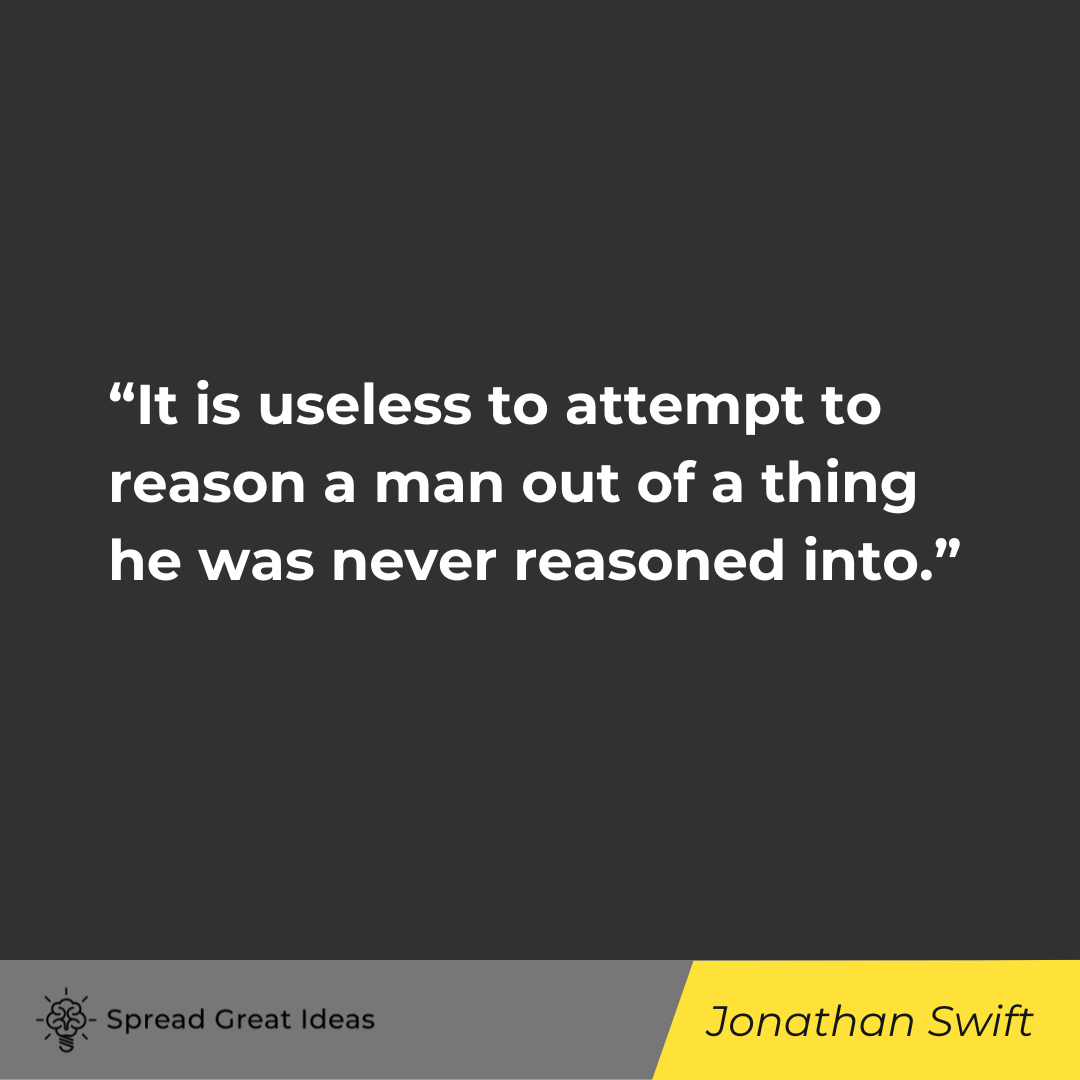
“It is useless to attempt to reason a man out of a thing he was never reasoned into.” – Jonathan Swift
“We do not realize how deeply our starting assumptions affect the way we go about looking for and interpreting the data we collect.” – Sue Savage-Rumbaugh, Kanzi: The Ape at the Brink of the Human Mind
The Personal Impact of Assumptions
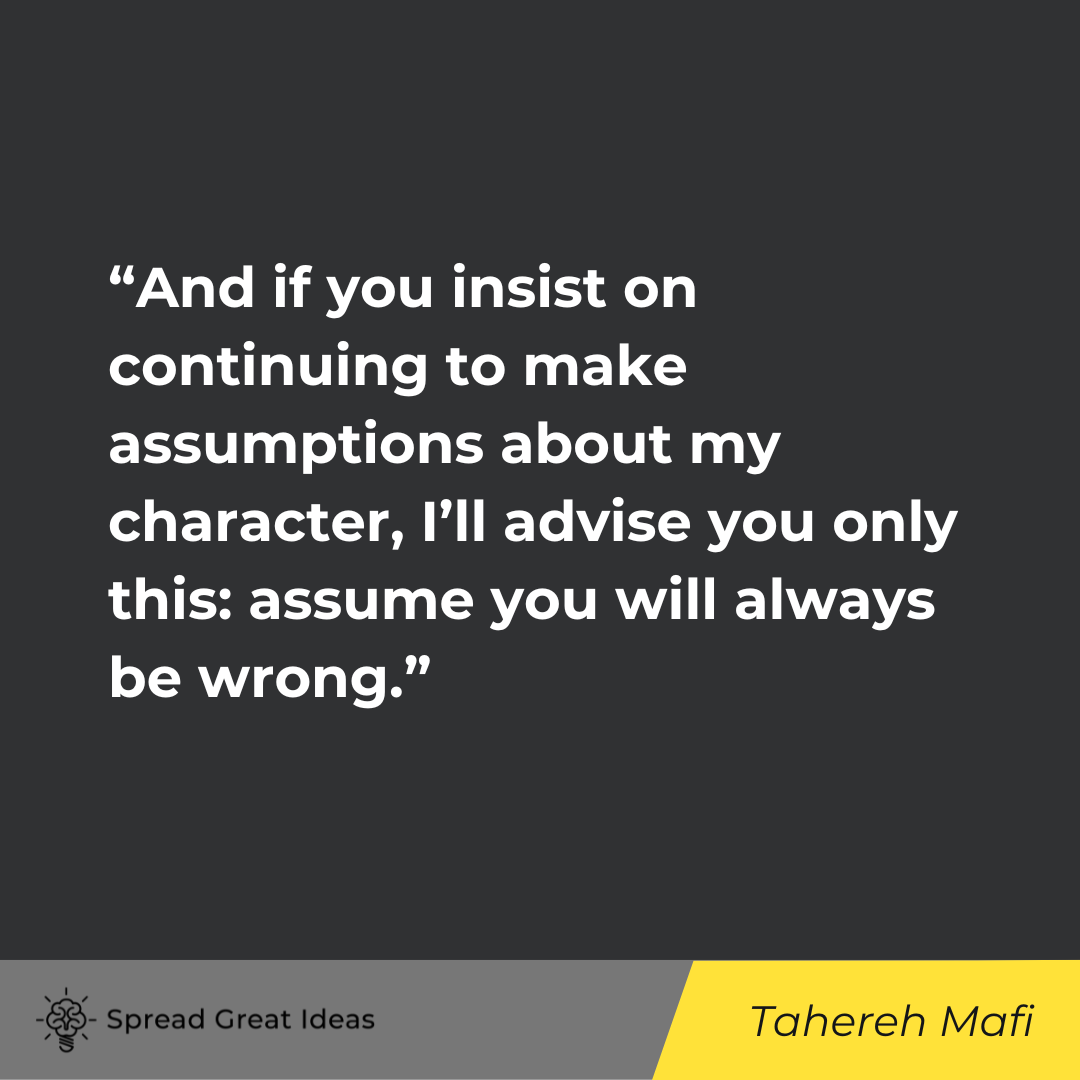
“And if you insist on continuing to make assumptions about my character, I’ll advise you only this: assume you will always be wrong.” – Tahereh Mafi, Ignite Me
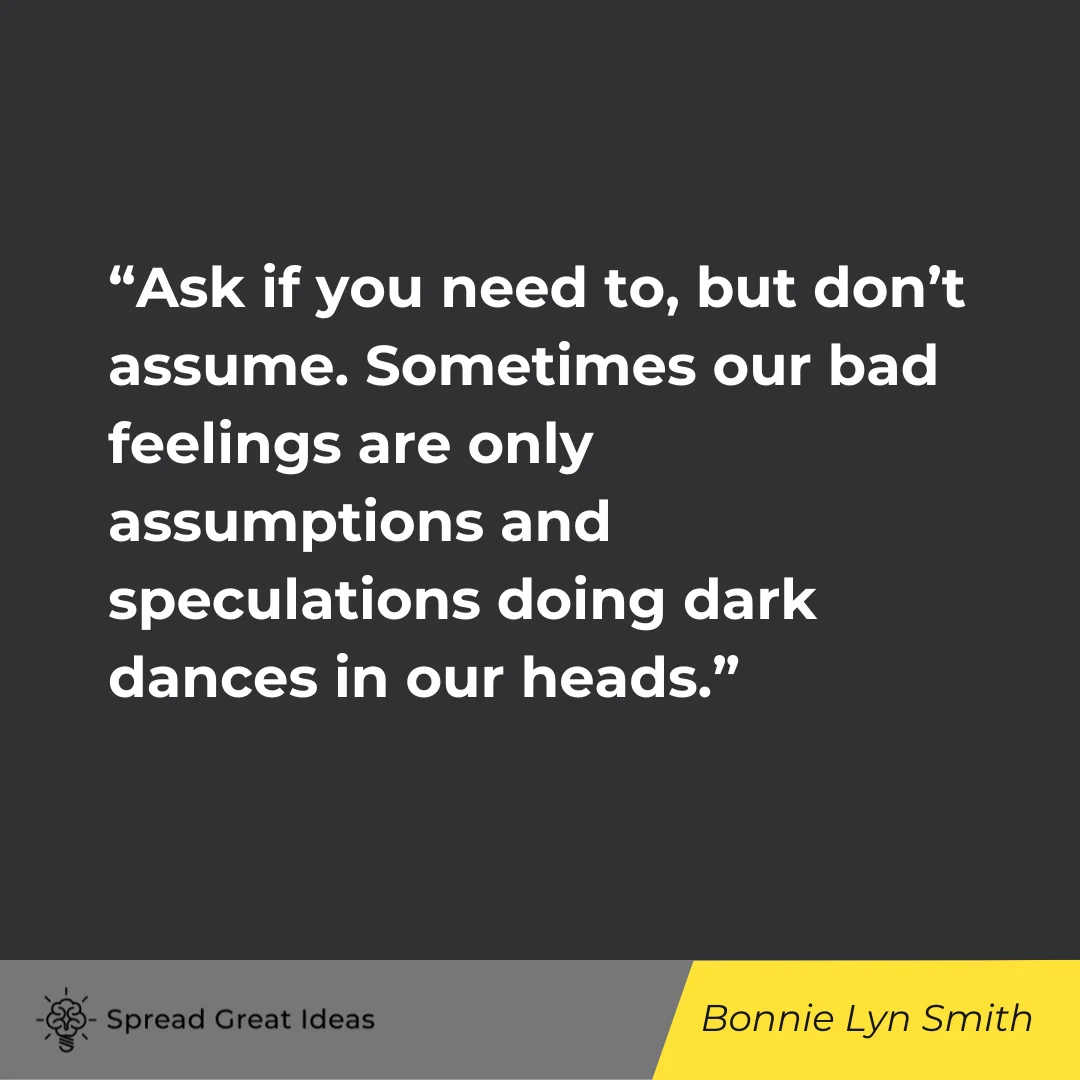
“Ask if you need to, but don’t assume. Sometimes our bad feelings are only assumptions and speculations doing dark dances in our heads.” – Bonnie Lyn Smith
Intrigued by the power of thought? Check out our collections of cognitive bias quotes and expectation quotes which reveal the hidden forces behind decision-making and perception.